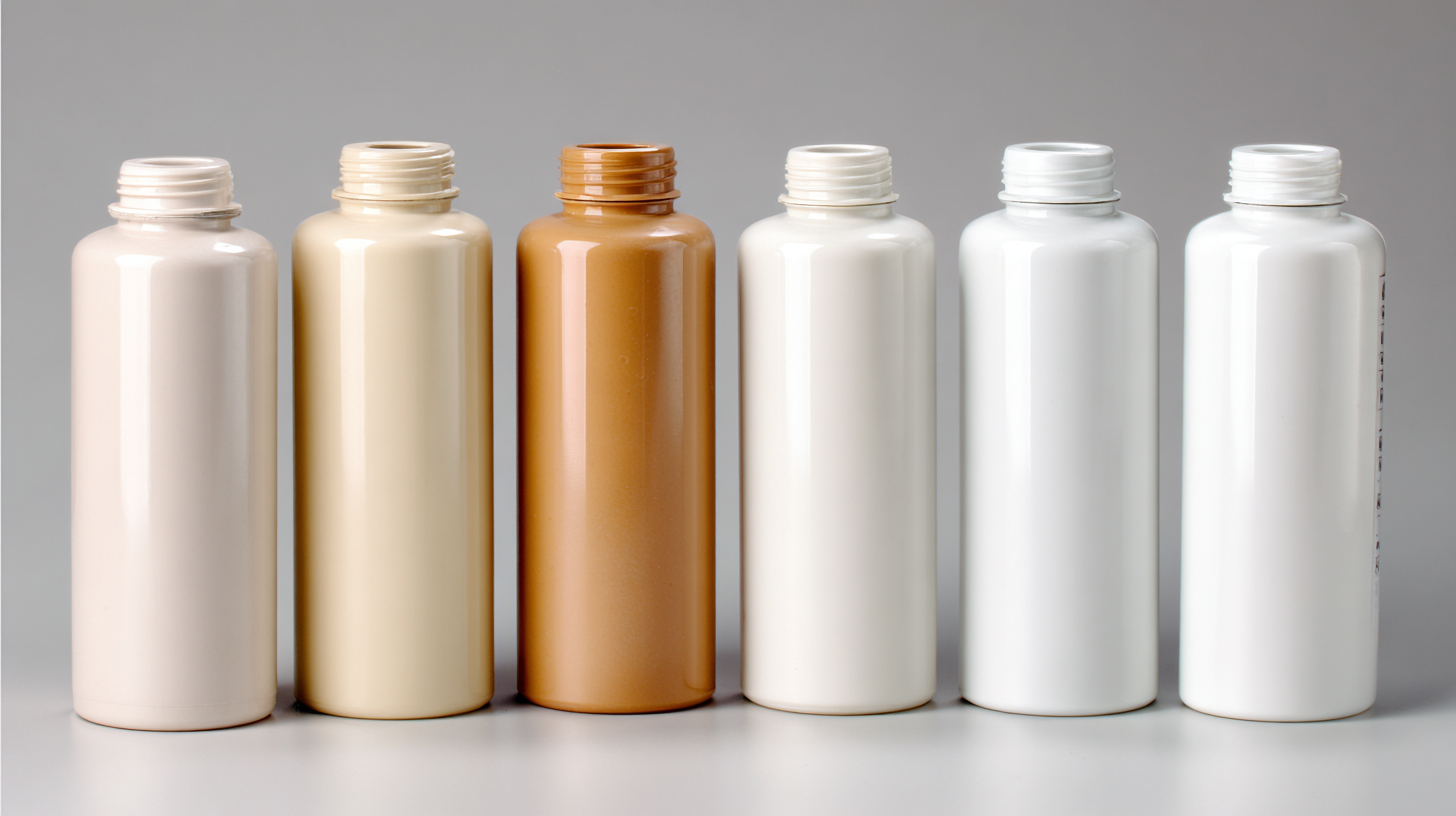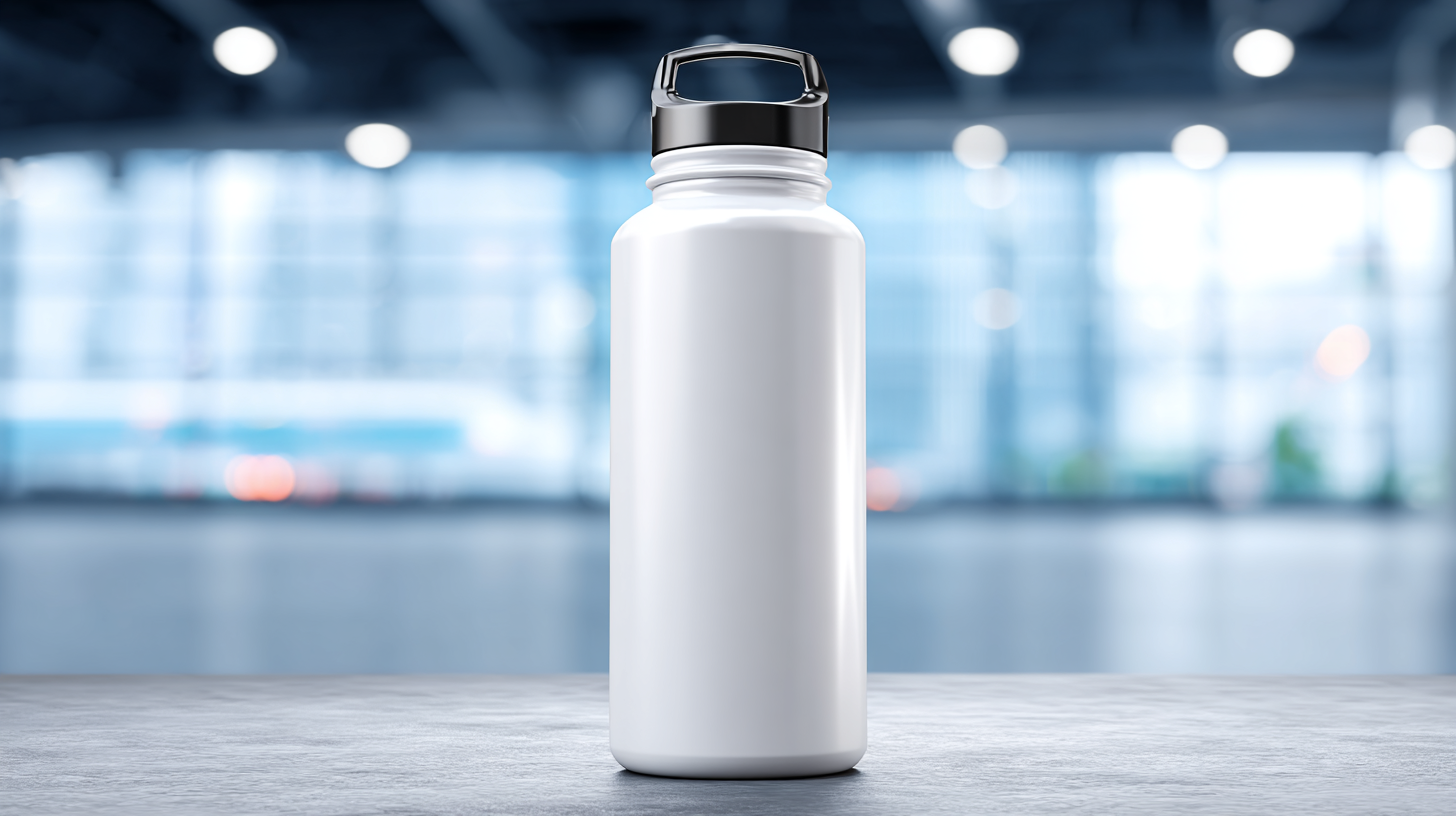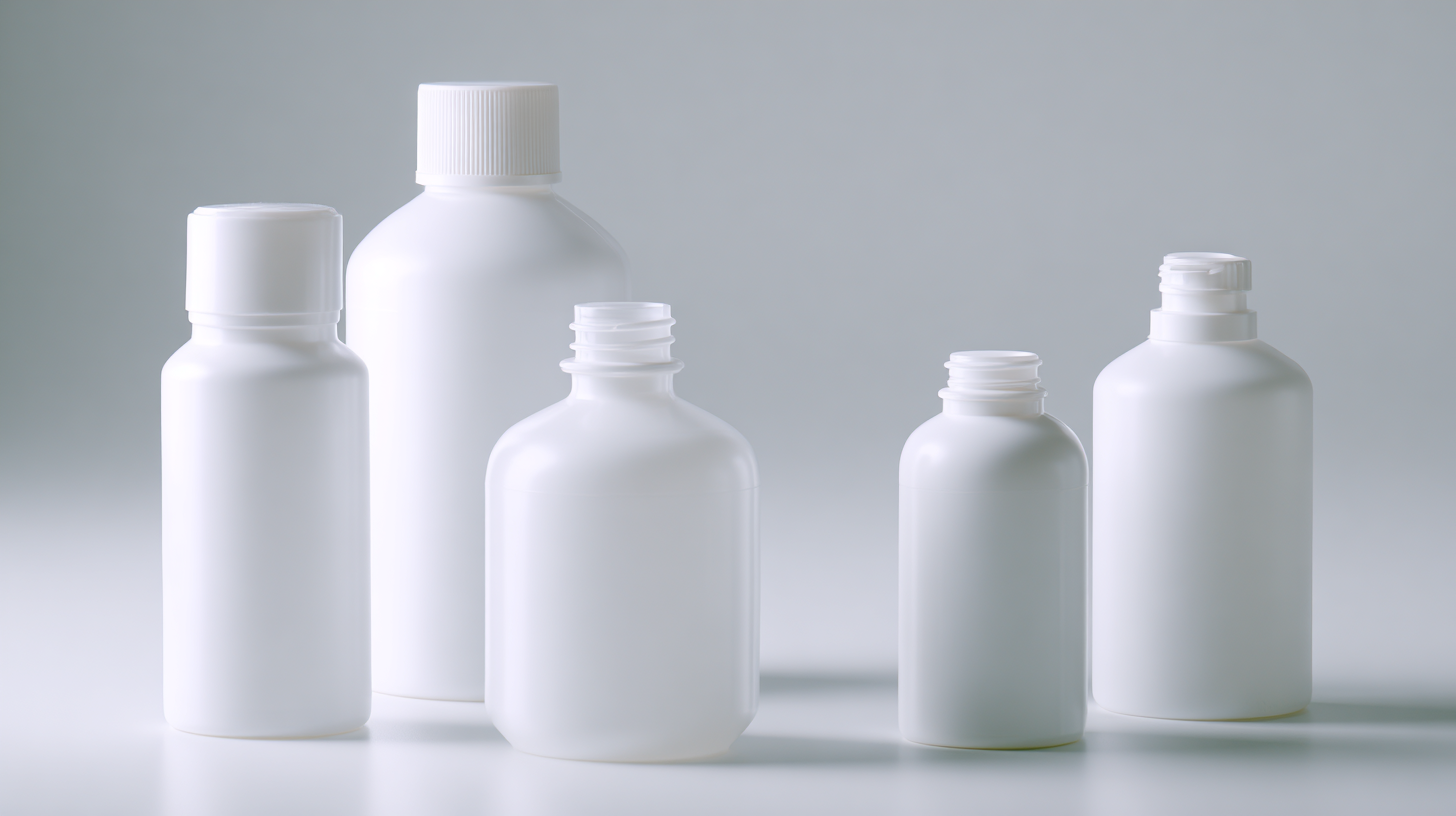When it comes to selecting the right PTFE bottle for industrial applications, understanding the unique properties and benefits of PTFE (Polytetrafluoroethylene) is crucial. Renowned for its chemical resistance, low friction, and high-temperature stability, a PTFE bottle stands out as an essential tool in various sectors, including pharmaceuticals, food processing, and chemical manufacturing. In this ultimate guide, we will delve into the key factors to consider when choosing the best PTFE bottle to meet your specific industrial needs. With an emphasis on the reliability and consistent quality of Chinese manufacturing, we will provide insights that will help you navigate the diverse options available in the market, ensuring you make an informed decision that enhances productivity and safety in your operations.

When considering the right materials for industrial applications, understanding the properties and advantages of polytetrafluoroethylene (PTFE) is crucial. PTFE is known for its exceptional chemical resistance, thermal stability, and low friction coefficient. According to the "Global Fluoropolymer Market" report, PTFE holds approximately 20% of the fluoropolymer market share due to its versatility and reliability in demanding environments. This unique polymer can withstand temperatures ranging from -200°C to 260°C, making it ideal for industries like chemicals, pharmaceuticals, and food processing.
**Tip:** Always consider the specific temperature and chemical exposure when selecting a PTFE bottle, as variations in formulations can lead to differences in performance.
Additionally, PTFE's non-stick properties make it an excellent choice for applications requiring easy cleaning and maintenance. Its hydrophobic nature also enables it to repel water, making it beneficial for storage and transportation of various materials. Industry reports suggest that using PTFE bottles can reduce contamination risks in sensitive processes, which is a significant advantage for sectors focused on safety and compliance.
**Tip:** Leverage PTFE's superior durability by investing in bottles that come with a robust warranty, as this can provide long-term cost savings in industrial settings.
| Feature | Description | Advantages | Typical Applications |
|---|---|---|---|
| Chemical Resistance | Resists corrosion from a wide range of chemicals. | Longer lifespan and reduced maintenance. | Chemical processing, pharmaceuticals. |
| Temperature Tolerance | Stable across a large temperature range (-200°C to +260°C). | Versatile for extreme handling conditions. | Cryogenics, high-heat applications. |
| Non-Stick Properties | Materials don’t adhere to the surface. | Easier to clean and reduces product loss. | Food processing, lab analysis. |
| Electrical Insulation | Excellent dielectric properties. | Safety in electrical applications. | Electronics, aerospace. |
| Durability | Highly resistant to wear and deformation. | Reduced replacement frequency. | Industrial machinery, automotive. |
When selecting PTFE bottles for chemical storage, it’s essential to consider several key factors that can impact safety, efficiency, and longevity. One of the primary considerations is the bottle's compatibility with various chemicals. PTFE, known for its exceptional resistance to heat and chemical corrosion, makes it an ideal choice for storing aggressive substances. Ensuring that the PTFE bottle can withstand the specific chemicals you intend to store is crucial to prevent leaks and contamination.
Another important factor is the design of the bottle, particularly its closure mechanism and sealing capabilities. A well-designed lid can significantly reduce the risk of spills, while also helping to maintain the integrity of the stored chemicals. A sturdy construction not only enhances protection from external factors like UV light, which can affect certain chemicals, but also ensures easy handling and transfer of contents.
Just as modern food storage solutions are tested for durability and ease of use, PTFE bottles should be evaluated for their performance under industrial conditions to ensure they meet your operational needs.
When selecting the right bottle for industrial applications, the material choice is crucial. PTFE (Polytetrafluoroethylene) has emerged as a leading option, particularly in environments that require chemical resistance and high thermal stability. Unlike traditional materials such as glass or metal, PTFE ensures minimal reactivity with stored substances, making it ideal for corrosive chemicals. Additionally, PTFE's non-stick properties facilitate easy cleaning and maintenance, significantly enhancing its usability in various industrial settings.
In comparison to alternatives like polyethylene or stainless steel, PTFE stands out for its superior temperature tolerance and durability. While polyethylene may offer some resistance to chemicals, it tends to degrade over time, especially under extreme conditions. On the other hand, stainless steel may withstand heat and pressure, yet it lacks the complete inertness of PTFE, which can lead to contamination issues for sensitive applications. Thus, for industries that prioritize purity and consistent performance, PTFE effectively outperforms other materials, making it a highly recommended choice for industrial bottles.
This chart presents a comparative analysis of PTFE bottles against other commonly used materials in industrial applications, highlighting their chemical resistance, temperature tolerance, and weight.
When selecting the best PTFE bottle for industrial applications, understanding the relevant industry standards and certifications is crucial to ensure quality and reliability. Certification such as NADCAP, which focuses on aerospace and defense manufacturing processes, speaks volumes about a product's compliance with strict industry requirements. Businesses that have obtained such certifications demonstrate their commitment to quality and safety in their manufacturing processes, thus instilling confidence in clients regarding the performance of their products.
Additionally, the growing market for PTFE-related products, projected to reach USD 1.21 billion by 2030, emphasizes the increasing importance of using high-quality materials in industrial settings. The significance of utilizing certified PTFE bottles lies not only in their durability and chemical resistance but also in their performance under various environmental conditions. Engaging with manufacturers who prioritize industry standards is essential for businesses looking to invest in long-lasting solutions that meet stringent operational demands.

When considering the acquisition of PTFE bottles for industrial applications, cost-effectiveness plays a crucial role in the decision-making process. According to a recent report by Smithers Pira, the global demand for fluoropolymer products, including PTFE, is projected to reach $5.5 billion by 2025. This signifies not only a growing acceptance of these materials in various industries but also highlights their long-term value over time. Businesses that invest in high-quality PTFE solutions benefit from reduced maintenance costs and increased durability, with PTFE bottles showing an impressive longevity of up to 20 years under appropriate handling conditions.

Moreover, transitioning to PTFE bottles can lead to significant savings by minimizing product loss due to chemical interactions and ensuring greater purity of stored substances. The American Chemical Society notes that PTFE is resistant to a wide variety of chemicals, allowing businesses to store aggressive solvents and reactants without the risk of contamination. In fact, companies that adopt PTFE solutions report up to a 30% reduction in material waste due to improved containment and stability when compared to traditional containers. This makes PTFE not just a front-end investment but a long-term solution that optimizes operational efficiencies and reduces overall costs.
